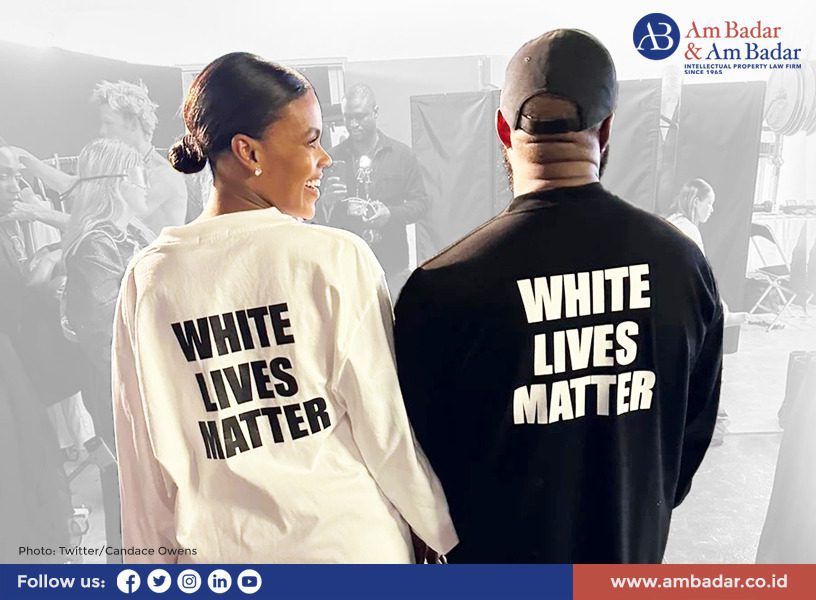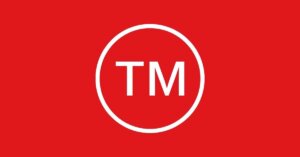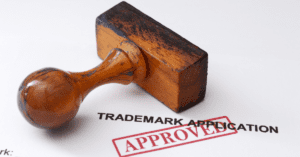At the Paris Fashion Week event some time ago, Kanye West, a rapper, songwriter, and fashion designer from the US, drew controversy because he wore a shirt that read ‘White Lives Matter’. It became controversial because the slogan contradicted the slogan ‘Black Lives Matter’, which had become a decentralised political and social movement to fight racism, discrimination and racial inequality.
The Trademark ‘White Lives Matter’ in the US is legally owned by two Civic Chipper radio broadcasters: Ramses Ja and Quinton Ward. The two broadcasters of Civic Chipper admitted that they were granted exclusive rights as holders of the ‘White Lives Matter’ Trademark by a listener. Registration of ‘White Lives Matter’ is essential, so irresponsible parties refrain from using the slogan to counter the ‘Black Lives Matter’ campaign or gain other benefits.
They were the ones who prevented Kanye from selling T-shirts with that slogan. This case is still a hot topic of discussion in the US. Can a registered Trademark be used by anyone else’s brand? What penalty for using someone else’s brand?
Can a registered Trademark be used by anyone other than the Trademark holder?
Based on Article 1 number 5 of Law No. 20 of 2016 concerning Trademarks and Geographical Indications, the right to a Trademark is an exclusive right granted by the state to registered Trademark owners for a certain time by using the Trademark themselves or giving permission to other parties to use it.
From this explanation, it can be concluded that the exclusive right to a Trademark will arise if the Trademark owner has submitted an application for registration and has received registration authorisation from the Directorate of Trademarks and Geographical Indications, Directorate General of Intellectual Property (DGIP), and has full rights to use the Trademark. The manifestation of the exclusivity right is:
Owners of exclusive rights to a Trademark have the right to use it.
The owner of the exclusive rights to the Trademark has the right to grant permission to other parties to use the Trademark.
The owner of the exclusive rights to the Trademark has the right to prohibit other people from using the Trademark.
Based on the case above, Kanye West must first ask permission from the rightful holders of the Trademark, namely Ramses Ja and Quinton Ward, to use the ‘White Lives Matter’ Trademark. If the rightful holder of the Trademark grants permission in the form of a license, then Kanye West can use the Trademark. However, if Kanye West does not get the license and continues to insist on using the Trademark, in that case, Kanye West will be punished as regulated by Law no. 20 of 2016 concerning Trademarks and Geographical Indications.
Penalties for using other’s Trademarks
Before entering into penalties for using other people’s Trademarks, you must know the definition of “equality in principle or in general,” which is regulated in the Elucidation of Article 21 Paragraph 1 of the Law on Trademarks and Geographical Indications:
What is meant by “similarity in essence” is a similarity caused by the presence of a dominant element between one Trademark and another Trademark to give rise to the impression that there are similarities, both in terms of shape, method of placement, method of writing or a combination of elements, as well as similarities in the sound of speech, contained in the Trademark.
If the above case occurs in Indonesia, Kanye West is advised to check first whether Ramses Ja and Quinton Ward have registered ‘White Lives Matter’ in class 25 regarding clothing, footwear and headgear. Because registration still has a chance to be approved even though the Trademarks to be registered are identical but of different classes. With a record that shows, except for well-known Trademarks, the Trademark registration is carried out in good faith. As stated in Article 21, paragraph (3) of the Trademark Law, famous Trademarks are allowed to submit a request to reject goods and/or services that are not similar.
If Kanye West does not get a license from the legal Trademark holder and still insists on using and registering the Trademark in the same class, then based on existing law in Indonesia, Ramses Ja and Quinton Ward can take three things, namely civil law steps, criminal law steps, and Arbitration or alternative dispute resolution.
Civil Law Steps
According to Article 83 of the Trademark Law, registered Trademark owners can file a lawsuit at the Commercial Court against third parties who use their Trademark without permission (without rights). Claims may include demands for financial compensation or demands that the accused Trademark infringer cease all business operations. This can be done if the violator sells similar goods and services with the same brand (in the same class). In addition to registered Trademark owners, lawsuits can be filed by well-known Trademark owners who are not registered as Trademark owners.
Criminal Law Steps
When their Trademarks are infringed, Trademark owners can file criminal charges. Article 103 of the Trademark Law defines the criminal provisions for Trademark infringement as a complaint offence. This means that law enforcement will not pursue any suit for Trademark infringement without a complaint from the Trademark owner. Violation of Trademarks and the same type is punishable by a maximum imprisonment of 5 years and a maximum fine of IDR 2 billion, as stipulated in Article 100 of the Trademark Law.
As for brand offenders whose products are identical, they face a maximum sentence of 4 years and a fine of IDR 2 billion. Trademark infringers who sell goods that result in severe environmental, health and even deadly consequences face even more serious criminal penalties. The maximum penalty for violating the Trademark is ten years in prison and a fine of up to IDR 2 trillion. Criminal threats are addressed to manufacturers and retailers of counterfeit goods. Especially for traders of counterfeit Trademarks, whether selling goods or services, are subject to imprisonment for one year or a fine of Rp. 200 million. These provisions are in line with Article 102 of the Trademark Law.
Arbitration or alternative dispute resolution
Owners of Trademarks whose Trademarks are infringed have further legal options, including civil and criminal legal action. In addition, owners of Trademarks whose Trademarks are infringed may use alternative dispute resolution methods. Under article 93 of the Trademark Law, negotiation, mediation, conciliation, and other techniques chosen by the parties are all considered a form of “alternative dispute resolution” the approach used can make the proposed solution beneficial to both parties. Through the Trademark licensing mechanism, for example, the trademark owner can grant the right to the infringer of the trademark to use it lawfully. Negotiations between the two parties can be used to achieve this. Alternative routes require less time and money. If this approach does not work, it is better to proceed with criminal and civil proceedings to prevent Trademarks from infringing and compensate the rightful parties.
Conclusion
The case for ownership of the Trademark ‘White Lives Matter’ between Kanye West and Ramses Ja & Quinton Ward is still ongoing. However, suppose a similar issue occurs in Indonesia. In that case, Ramses Ja and Quinton Ward, holders of the ‘White Lives Matter’ Trademark Rights, can take three things: civil law steps, criminal law steps, and Arbitration or alternative dispute resolution.
Therefore, if Partners wish to register a Trademark, choose a new and original name that has never been registered before, if you want to register Trademark to avoid the same problems as the case above.
You can search the Intellectual Property Database to find other registered Trademarks when you come across a Brand name. Additionally, speaking to a knowledgeable intellectual property expert for the best course of action is advisable. You can email our knowledgeable and reliable intellectual property consultant at ambadar@ambadar.co.id.
Sources:
Undang-Undang no.20 tahun 2016 tentang Merek dan Indikasi Geografis






